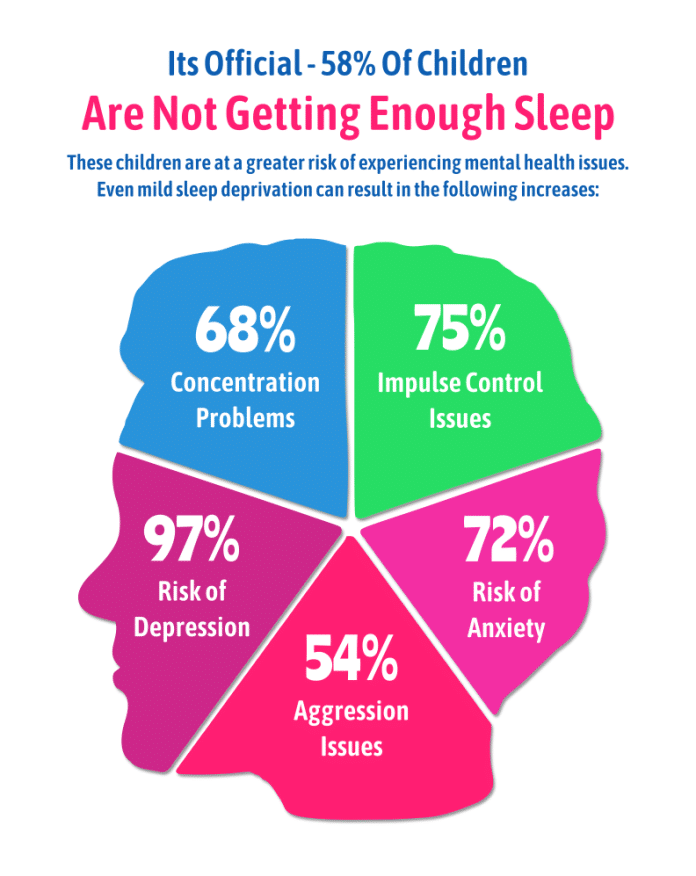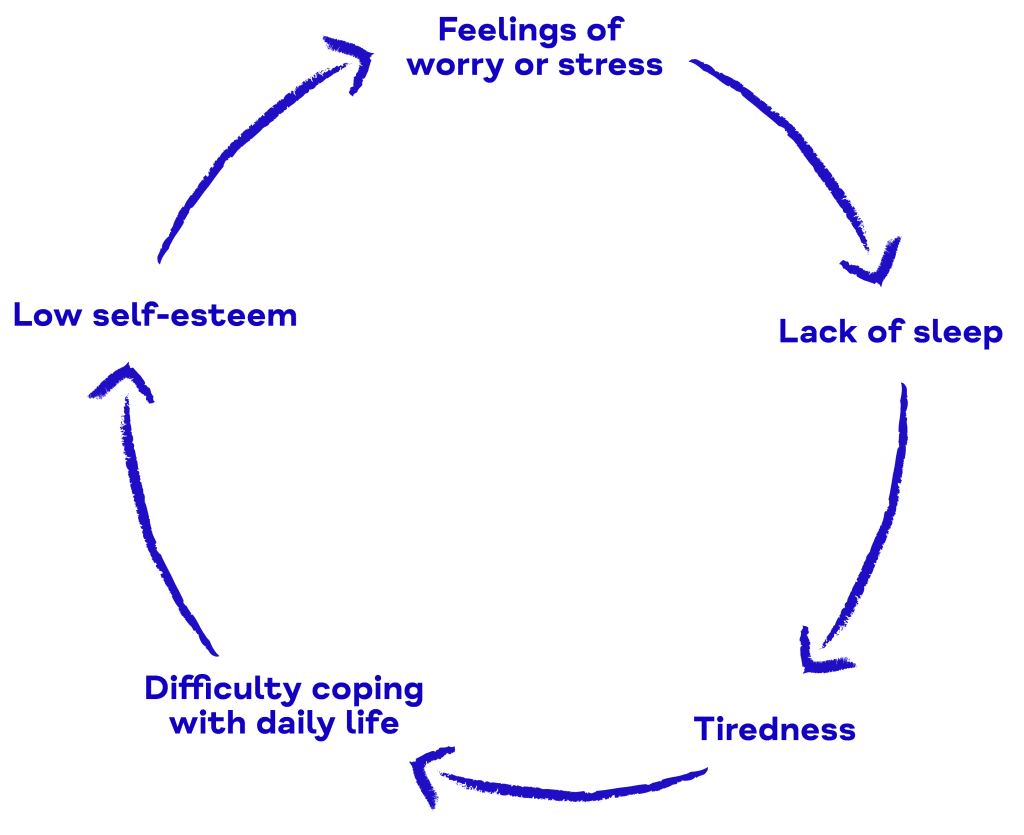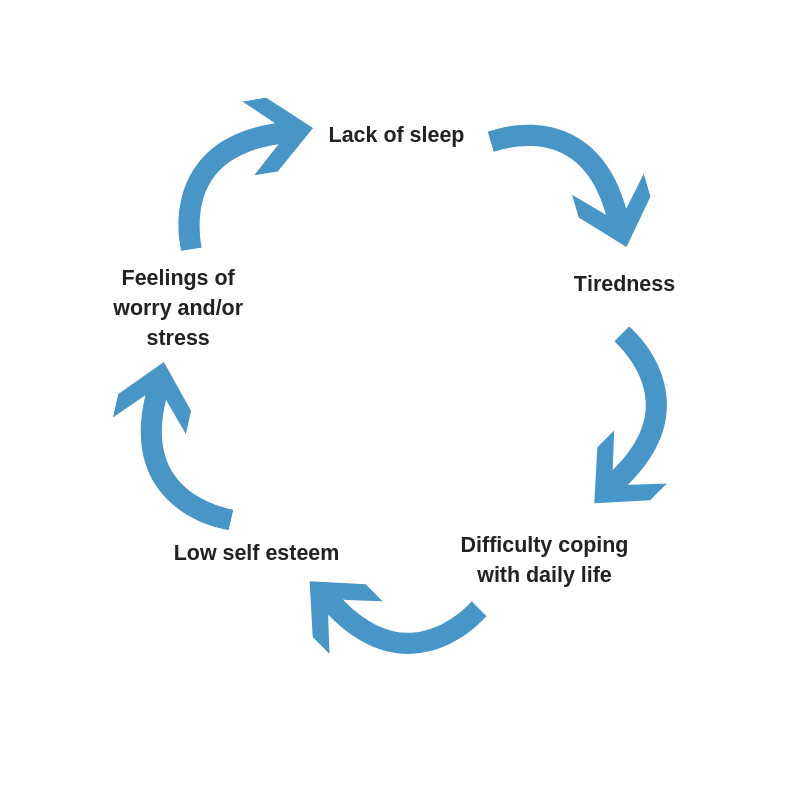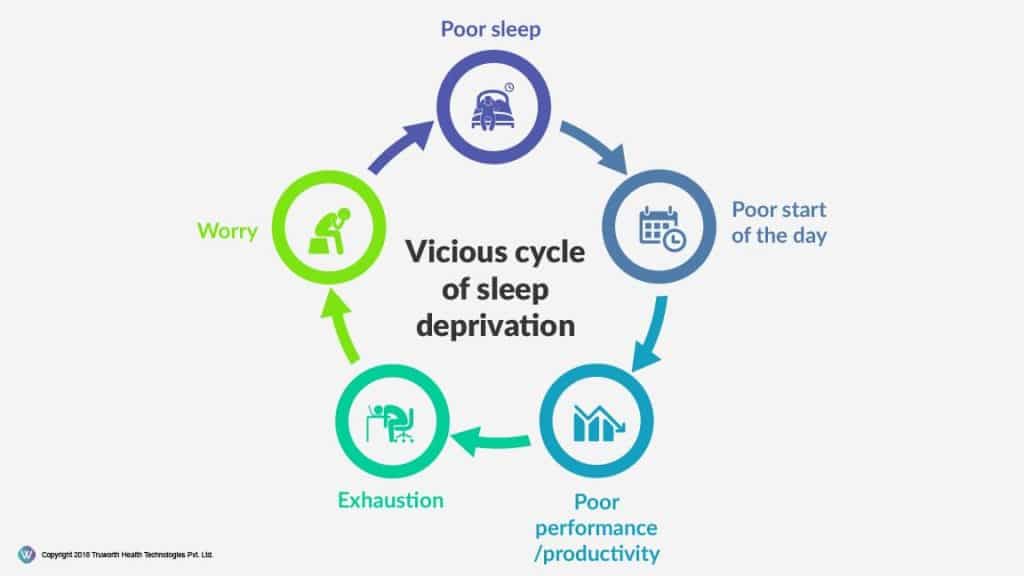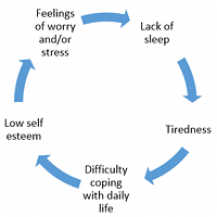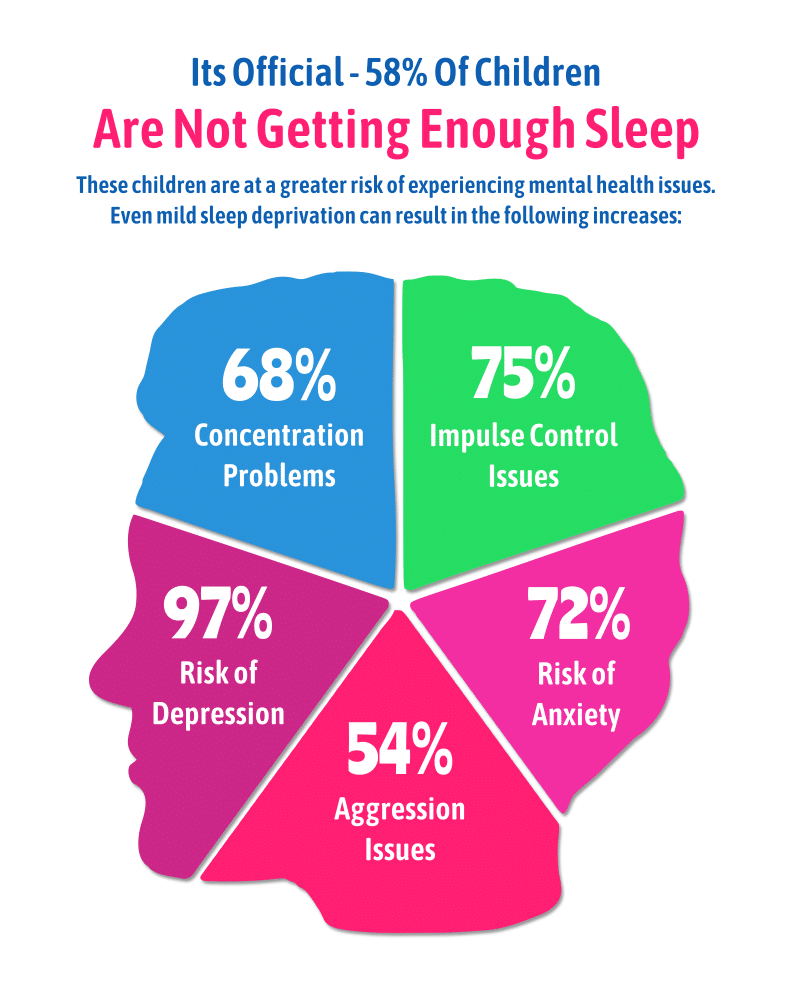In the fast-paced and demanding world we live in, it often feels like sleep is a luxury we can’t afford. But have you ever stopped to consider how crucial sleep is for our mental health? From our ability to cope with stress and regulate our emotions to our cognitive function and overall mood, sleep plays a significant role in our psychological well-being. In this article, we explore the fascinating relationship between sleep and mental health, shedding light on the ways in which a good night’s sleep can positively impact our minds, and what happens when we don’t get enough restorative slumber. So, get cozy and get ready to learn how sleep underscores the foundation of our mental well-being.
Review contents
The Importance of Sleep for Mental Health
Sleep and Emotional Regulation
Sleep plays a crucial role in regulating our emotions. When we don’t get enough sleep, our ability to process and regulate our emotions becomes compromised. We may find ourselves feeling more irritable, moody, or even experiencing heightened emotional reactions to everyday situations. On the other hand, when we have a restful night’s sleep, we are better equipped to handle the various challenges and stressors that come our way. Our emotions are more stable, and we are better able to cope with difficult situations.
Sleep and Cognitive Functioning
In addition to impacting our emotions, sleep also has a profound effect on cognitive functioning. When we are well-rested, our cognitive abilities, such as attention, concentration, and problem-solving skills, are significantly improved. We are more alert, focused, and able to perform at our best. On the other hand, a lack of sleep can lead to difficulties in concentration, memory problems, and reduced decision-making abilities. It becomes much harder to think clearly and perform complex tasks when our sleep is compromised.
Sleep Deprivation and Mental Health Disorders
Links between Sleep Deprivation and Depression
Sleep deprivation and depression have a bidirectional relationship. Individuals with depression often experience disruptions in their sleep patterns, such as insomnia or excessive sleepiness. At the same time, sleep deprivation can also contribute to the development and worsening of depressive symptoms. Lack of sleep affects the brain’s neurotransmitters, leading to imbalances that can contribute to depressive symptoms. Addressing sleep issues is vital in the treatment of depression and can significantly improve overall mental well-being.
Sleep Deprivation and Anxiety Disorders
Sleep deprivation is closely linked to anxiety disorders, including generalized anxiety disorder, panic disorder, and post-traumatic stress disorder (PTSD). Chronic sleep deprivation can increase feelings of anxiety, intensify worry and fear, and impair the ability to cope with stress. On the other hand, individuals with anxiety disorders often experience difficulties falling asleep or staying asleep due to intrusive and racing thoughts. Sleep interventions and establishing healthy sleep habits can be beneficial in reducing anxiety symptoms and promoting a calmer state of mind.
Association between Sleep Deprivation and Bipolar Disorder
Sleep disruption is a common symptom of bipolar disorder. During manic episodes, individuals may experience a decreased need for sleep and engage in reckless behavior, while depressive episodes can lead to excessive sleepiness and difficulty getting out of bed. Irregular sleep patterns can trigger and exacerbate the mood swings associated with bipolar disorder. It is important for individuals with bipolar disorder to prioritize sleep and maintain a regular sleep schedule to promote stability and overall mental health.
Sleep Disorders and Mental Health
Insomnia and its Impact on Mental Health
Insomnia, characterized by difficulty falling asleep, staying asleep, or waking up too early, can have a profound impact on mental health. Chronic insomnia is associated with an increased risk of developing mood disorders, such as depression and anxiety. It can also worsen existing mental health conditions and contribute to feelings of fatigue, irritability, and impaired concentration. Treating insomnia through cognitive behavioral therapy for insomnia (CBTI) and other sleep interventions can significantly improve both sleep quality and mental well-being.
Sleep Apnea and Mental Health
Sleep apnea, a sleep disorder characterized by pauses in breathing during sleep, not only affects physical health but also has implications for mental health. Chronic sleep apnea can lead to chronic sleep deprivation, as the interruptions in breathing can cause multiple awakenings throughout the night. Sleep apnea has been associated with an increased risk of developing depression, anxiety, and cognitive impairment. Proper diagnosis and treatment, which may involve the use of continuous positive airway pressure (CPAP) machines, can help alleviate sleep apnea symptoms and improve mental health.
Narcolepsy and its Effects on Mental Health
Narcolepsy, a neurological disorder characterized by excessive daytime sleepiness and sudden uncontrollable episodes of falling asleep, can significantly impact mental health. Individuals with narcolepsy often experience difficulties in maintaining a regular sleep schedule, leading to disrupted sleep patterns. This can result in excessive daytime sleepiness, poor concentration, and impaired cognitive functioning. The impact of narcolepsy on mental health can include increased irritability, decreased motivation, and feelings of frustration. Treatment for narcolepsy, such as medication and behavioral strategies, can help manage symptoms and improve overall mental well-being.
The Bidirectional Relationship between Sleep and Mental Health
Poor Sleep as a Risk Factor for Mental Health Issues
Poor sleep quality and sleep disturbances can serve as risk factors for developing mental health issues. Chronic sleep problems can increase vulnerability to the development of mood disorders, anxiety disorders, and other mental health conditions. This is due to the impact of disrupted sleep on brain functioning, neurotransmitter imbalances, and the body’s stress response system. By prioritizing good sleep hygiene and addressing sleep issues, individuals can reduce their risk of developing mental health problems.
Mental Health Issues Leading to Sleep Problems
Conversely, mental health issues can also contribute to the development of sleep problems. Conditions like depression, anxiety, and post-traumatic stress disorder can lead to difficulties falling asleep, staying asleep, or experiencing nightmares. The emotional and psychological burden of these conditions can disrupt sleep patterns, making it challenging for individuals to get the restorative sleep they need. Proper mental health treatment, including therapy and medication, can help manage these conditions and improve sleep quality.
Sleep Hygiene and Mental Well-being
Establishing a Consistent Sleep Routine
Creating a consistent sleep routine is essential for maintaining good sleep hygiene and promoting mental well-being. Going to bed and waking up at the same time each day helps regulate the body’s internal clock, promoting better sleep quality and making it easier to fall asleep and wake up naturally. Implementing a relaxing bedtime routine, such as reading or listening to calming music, can also signal to the body that it is time to wind down and prepare for sleep.
Creating a Sleep-Friendly Environment
Creating a sleep-friendly environment is important for optimizing sleep quality and mental well-being. This includes keeping the bedroom cool, dark, and quiet. Removing electronic devices from the bedroom and avoiding exposure to screens in the hour before sleep can also promote better sleep. Investing in a comfortable mattress and pillows, as well as using blackout curtains or white noise machines if necessary, can further enhance the sleep environment.
Avoiding Stimulants and Technology Before Bed
Stimulants such as caffeine, nicotine, and alcohol can interfere with sleep quality and disrupt the sleep cycle. It is best to avoid these substances, especially in the evening hours close to bedtime. Additionally, using electronic devices before bed can inhibit the production of melatonin, a hormone that regulates sleep. The blue light emitted by screens can interfere with the body’s natural sleep-wake cycle. Establishing a technology-free period before bed can help prepare the mind and body for a restful night’s sleep.
Treating Mental Health Issues with Sleep Interventions
Cognitive Behavioral Therapy for Insomnia (CBTI)
Cognitive Behavioral Therapy for Insomnia (CBTI) is a specialized form of therapy aimed at improving sleep quality and addressing insomnia. It focuses on changing negative thought patterns and behaviors related to sleep. CBTI combines techniques such as sleep restriction therapy, stimulus control, and relaxation techniques to promote healthy sleep habits. It has been shown to be an effective treatment for insomnia and can significantly improve sleep quality and overall mental well-being.
Sleep Medications and their Role in Mental Health Treatment
In some cases, sleep medications may be prescribed to treat sleep disorders or to improve sleep quality in individuals with mental health conditions. These medications can help address acute sleep problems and provide relief for individuals experiencing significant sleep disturbances. However, it is important to work closely with a healthcare professional when using sleep medications, as they can have potential side effects and may not be suitable for long-term use.
The Impact of COVID-19 on Sleep and Mental Health
Changes in Sleep Patterns during the Pandemic
The COVID-19 pandemic has brought about significant changes in sleep patterns for many individuals. The stress and uncertainty caused by the pandemic have resulted in increased levels of anxiety and disrupted sleep. Some people may be experiencing difficulties falling asleep or staying asleep due to heightened worries and concerns. Others may find themselves oversleeping or experiencing irregular sleep patterns due to disruptions in daily routines.
Mental Health Consequences of Disrupted Sleep due to COVID-19
The disrupted sleep patterns caused by the pandemic can have detrimental effects on mental health. Sleep deprivation and poor sleep quality can exacerbate feelings of anxiety and depression. The reduction in social interactions and limited access to support networks can also contribute to feelings of loneliness and isolation, further impacting mental well-being. It is important to prioritize self-care, establish a regular sleep routine, and seek professional help when needed to manage the mental health consequences of disrupted sleep during this challenging time.
Sleep and Suicide Risk
The Relationship between Sleep Disturbances and Suicidal Thoughts
Research has shown a strong association between sleep disturbances and an increased risk of suicidal thoughts and behaviors. Sleep problems, such as insomnia and nightmares, have been identified as significant risk factors for suicidal ideation and suicide attempts. Sleep disturbances can contribute to the development of negative thought patterns and impair decision-making abilities, making individuals more susceptible to suicidal ideation. Addressing sleep problems as part of suicide prevention strategies is crucial in protecting individuals’ mental well-being.
Addressing Sleep Problems as a Suicide Prevention Strategy
Recognizing and addressing sleep problems can be an important aspect of suicide prevention. Providing individuals at risk with access to mental health resources, including therapy and support groups, can help identify and treat underlying sleep disorders and improve sleep quality. Additionally, promoting education and awareness about the bidirectional relationship between sleep and mental health can help reduce stigma and encourage individuals to seek help for sleep issues as part of their overall mental health care.
Sleep Interventions for Improved Mental Health
Implementing Sleep Interventions in Mental Health Treatment
Integrating sleep interventions into mental health treatment plans can significantly improve outcomes for individuals with mental health issues. Mental health professionals can work collaboratively with sleep specialists to develop personalized approaches that address both mental health and sleep concerns. This may involve incorporating CBT for insomnia techniques, providing sleep education, and monitoring sleep patterns alongside traditional therapy methods.
The Role of Sleep in Recovery from Mental Illness
Sleep plays a vital role in the recovery process from mental illness. Adequate sleep promotes the consolidation of learned coping skills and emotional regulation, which are crucial for individuals navigating their mental health journey. It is essential for healthcare providers to prioritize sleep as part of the overall treatment plan, ensuring that individuals receive the necessary support and guidance to improve their sleep patterns and enhance their recovery.
Conclusion
The Significant Impact of Sleep on Mental Health
Sleep has a significant impact on our mental health. From regulating our emotions to improving cognitive functioning, sleep plays a critical role in maintaining overall mental well-being. Disruptions in sleep can contribute to the development and exacerbation of mental health disorders such as depression, anxiety, and bipolar disorder. On the flip side, mental health issues can also lead to sleep problems, creating a bidirectional relationship between sleep and mental health.
Promoting Good Sleep for Better Mental Well-being
Prioritizing good sleep hygiene and implementing sleep interventions can greatly improve mental well-being. By establishing consistent sleep routines, creating a sleep-friendly environment, and avoiding stimulants and technology before bed, individuals can optimize their sleep quality and promote better mental health. Incorporating sleep interventions into mental health treatment plans and addressing sleep issues as part of suicide prevention strategies are essential steps in enhancing overall mental well-being.
In conclusion, getting enough quality sleep is crucial for maintaining optimal mental health. By understanding the interconnectedness of sleep and mental well-being, we can take proactive steps to improve our sleep habits, seek appropriate treatment for sleep disorders, and prioritize mental health care. Embracing good sleep hygiene practices and seeking professional help when needed are essential in promoting a healthier and happier life for all of us.

